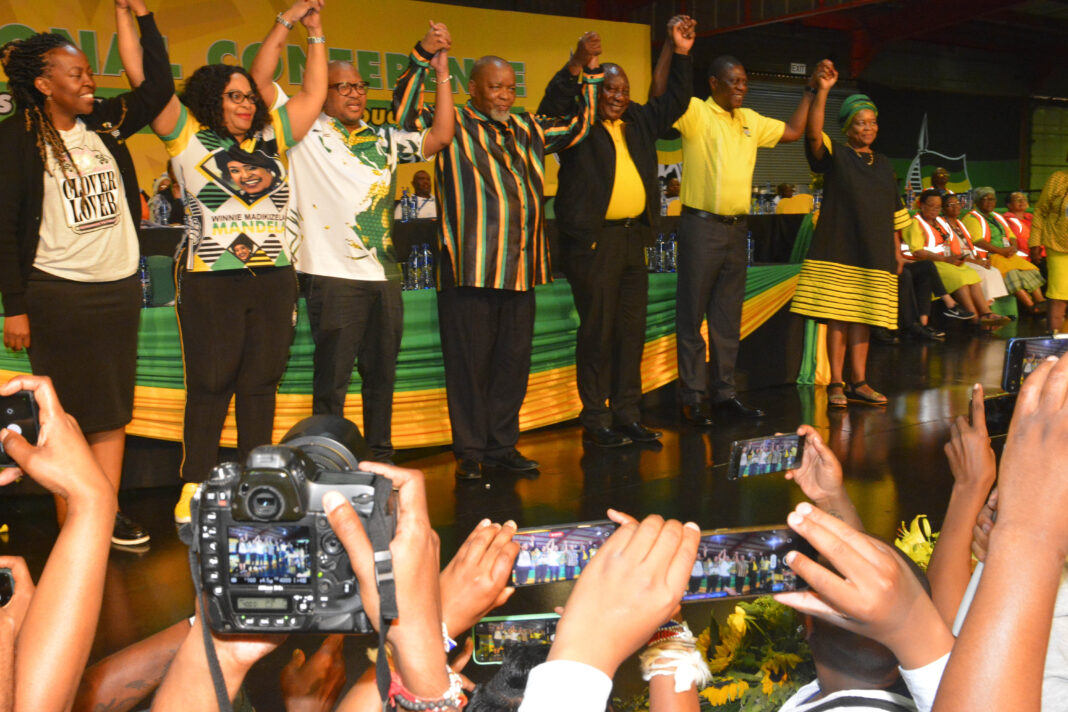PHOTOS: Eddie Mtsweni
CYRIL RAMAPHOSA: President
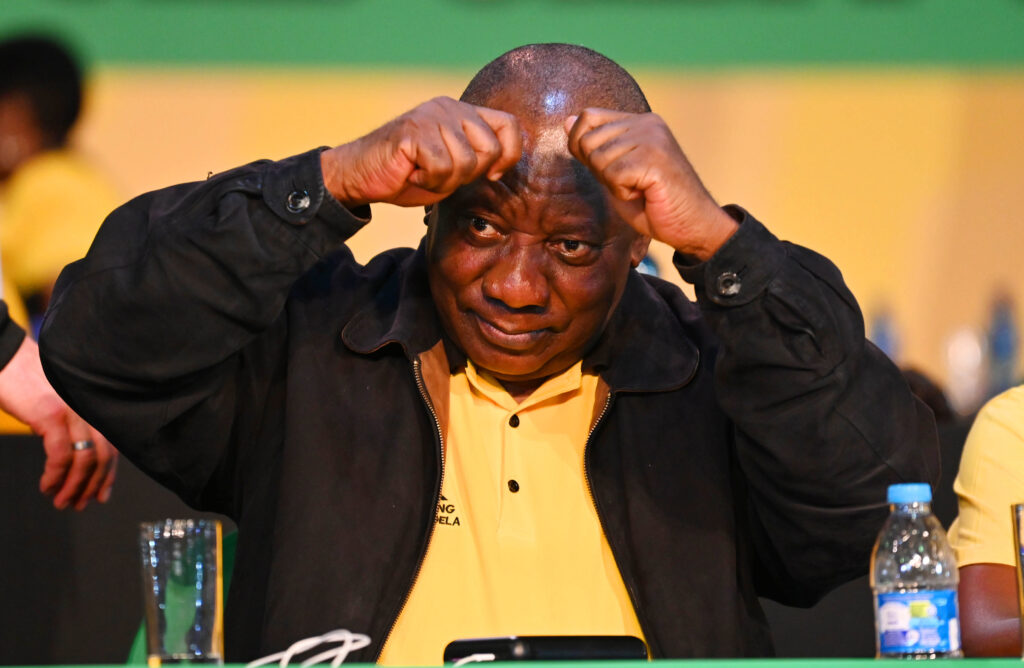
THE re-election of Cyril Ramaphosa for another term at the ANC’s historic 55th national elective conference put him in pole position to lead the party during the upcoming 2024 general elections.
Ramaphosa, 70, won the confidence vote despite being dogged by allegations of money laundering after he allegedly kept over $580 000 at his farm in Bela Bela, Limpopo, without declaring it to the authorities.
Ramaphosa has denied any wrong-doing and has since launched a legal bid to challenge the Section 89 independent panel report, that found he may have violated the constitution.
The independent panel, appointed by the Speaker of Parliament Nosiviwe Mapisa-Nqakula, said that Ramaphosa has a case to answer as he may have both violated the Constitution and broken the country’s anti-corruption laws.
The Phala Phala saga is expected to be an albatross around his neck during his second-term.
During his first term in office, Ramaphosa has had to deal with several challenges facing his administration, including State Capture, wide-scale looting of COVID-19 of PPE funds, the energy crisis, power cuts at Eskom, rising crime levels, unemployment and a poor economic outlook.
Ramaphosa’s key priorities will be among other things, fixing Eskom, which has had a negative impact on economic growth. His other biggest task will be to save the ANC from self-destructing through his renewal programme.
The party has experienced deepening divisions over the past few years as varying factions battle to control the heart and soul of the ANC. It has also experienced declining membership. The party has lost over half a million members from 1, 6 million to about 1 million since 2017. It has also seen a declining electoral support, which saw it losing key metros including Tshwane, Johannesburg, Ekurhuleni and Nelson Mandela Bay during the 2016 and 2021 local government elections.
Ramaphosa’s renewal programme has been met with resistance by allies of former President Jacob Zuma, popularly known as the Radical Economic Transformation (RET) forces.
Ramaphosa, a long-time anti-Apartheid activist, is the former General Secretary of the National Union Mineworkers (NUM).
Shortly after leaving government and active politics in the late 1990s, he ventured into business, and became one of the richest businessmen as a result of the country’s Black Economic Empowerment (BEE) policy.
PAUL MASHATILE: Deputy President
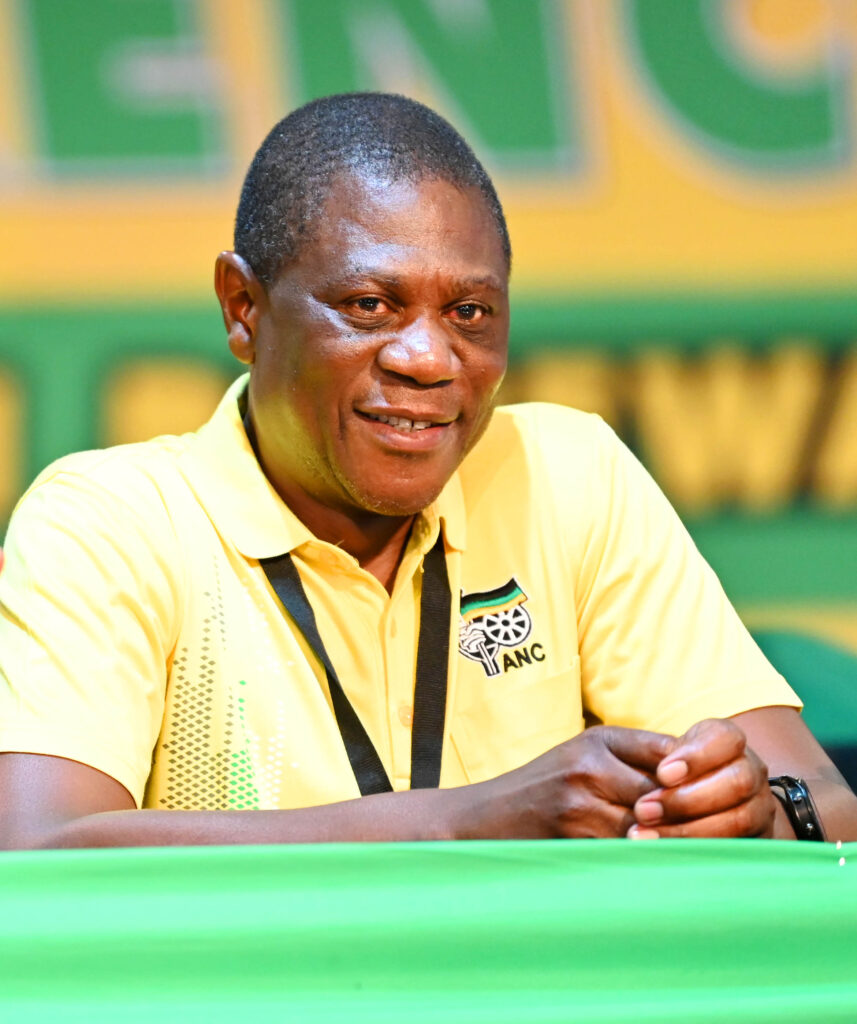
Former ANC Treasurer-General Paul Mashatile was elected Deputy President after defeating Justice Minister Ronald Lamola and Eastern Cape Premier Oscar Mabuyane, who was Ramaphosa’s preferred candidate for the second-most powerful post in the governing party.
Mashatile secured 2,178 votes, while Mabuyane received 1,858.
Mashatile is the front-runner to become State President if Ramaphosa is removed from power as a result of the Phala Phala saga.
While it’s too early to tell, Mashatile will in all likelihood become Deputy President in government if the incumbent David Mabuza quits. Mabuza declined to stand for re-election during the elective conference.
Mashatile, who cut his teeth in Southern Transvaal township politics during the anti-Apartheid struggle, is regarded as one of the most powerful politicians in Gauteng since 1994.
Mashatile, 61, has served as Deputy Chairperson of the ANC in Gauteng and was elected Chairperson of the Province in 2007.
After the resignation of the Premier of Gauteng Mbhazima Shilowa in 2008, Mashatile took over as Premier of the province. He also served as MEC for finance and Human Settlements in Gauteng as well as Arts and Culture Minister under president Jacob Zuma. He acted as ANC secretary general over the past few months after the suspension of Ace Magashule and the death of deputy secretary general Jessie Duarte. Under Mashatile’s watch, the ANC struggled to pay staff salaries resulting in a series of protest action. Mashatile is alleged to be the kingpin behind the Alex Mafia- an informal name referring to a group of politicians and businessmen from Alexandra township. He is one of the most feared ANC leaders in Gauteng province and rumoured to be a wealthy business man. Mashatile denies this. In 2017, Mashatile, nicknamed chair of chairs, rallied branches in Gauteng and other provinces, behind the CR17 campaign. Ahead of the 2022 elective conference, the Gauteng strongman, ran a successful campaign without associating himself either Ramaphosa or Zweli Mkhize’s faction.
FIKILE MBALULA: Secretary-General
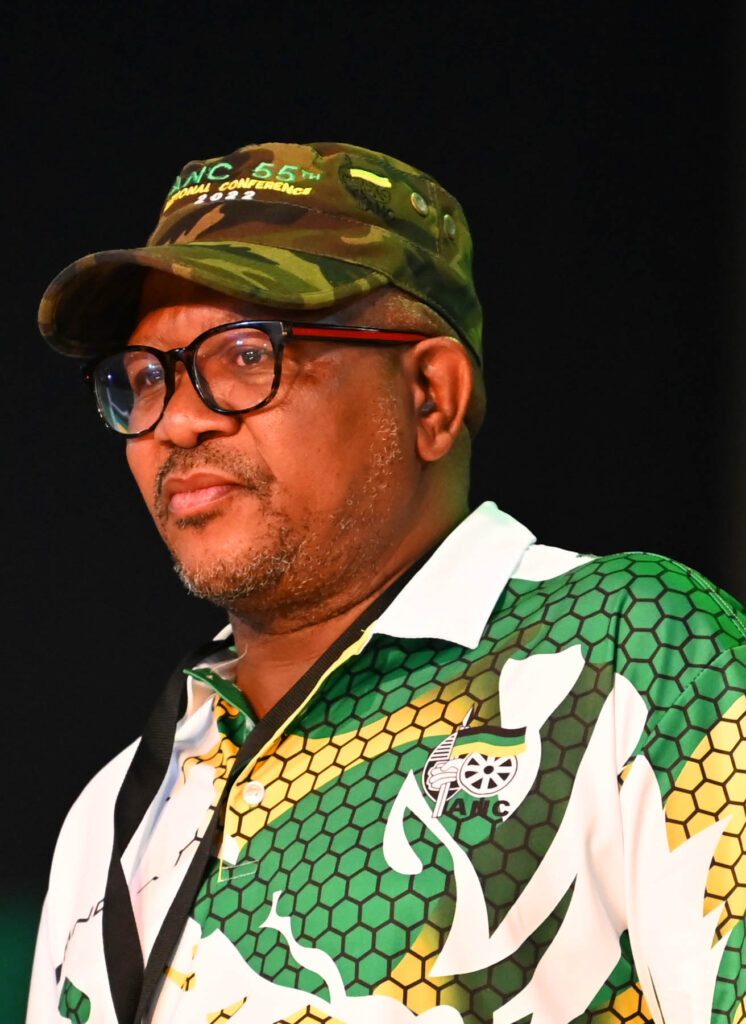
Transport Minister and former ANC Youth League leader Fikile Mbalula has emerged as the favourite for the position of Secretary General, with 1,692 votes, ahead of contenders Phumulo Masualle (1,590) and Mdumiseni Ntuli (1,080).
Ahead of the elective conference at Nasrec, Mbalula placed himself at the centre of Ramaphosa’s campaign for a second term, defending him from criticism and personal attacks from members of the radical economic transformation (RET) faction.
Mbalula faces a daunting task ahead of him as Secretary-General of the party following the suspension of his predecessor Ace Magashule, who is facing charges of corruption in the asbestos scandal in the Free State.
According to an organisational report by outgoing Deputy President David Mabuza, the absence of Magashule in the Office of the Secretary-General at Luthuli House affected the core functions and programmes of the governing party during the last two years.
Mbalula describes himself on his social media profiles as a confident person, efficient and goal-driven individual who always go the extra smile when given a task to perform.
He is expected to turnaround management of the party’s headquarters, revive moribund branches, increase membership and bring some semblance of unity and cohesion. Mbalula’s election to as secretary general represent a victory for generational mix. Mbalula has unsuccessfully campaigned to be elected for the position of secretary general since 2012. He also has ambitions to become ANC president in future.
Mbalula is expected to quit his post as Transport Minister as the position of Secretary-General is a full-time one.
NOMVULA MOKONYANE: First Deputy Secretary-General
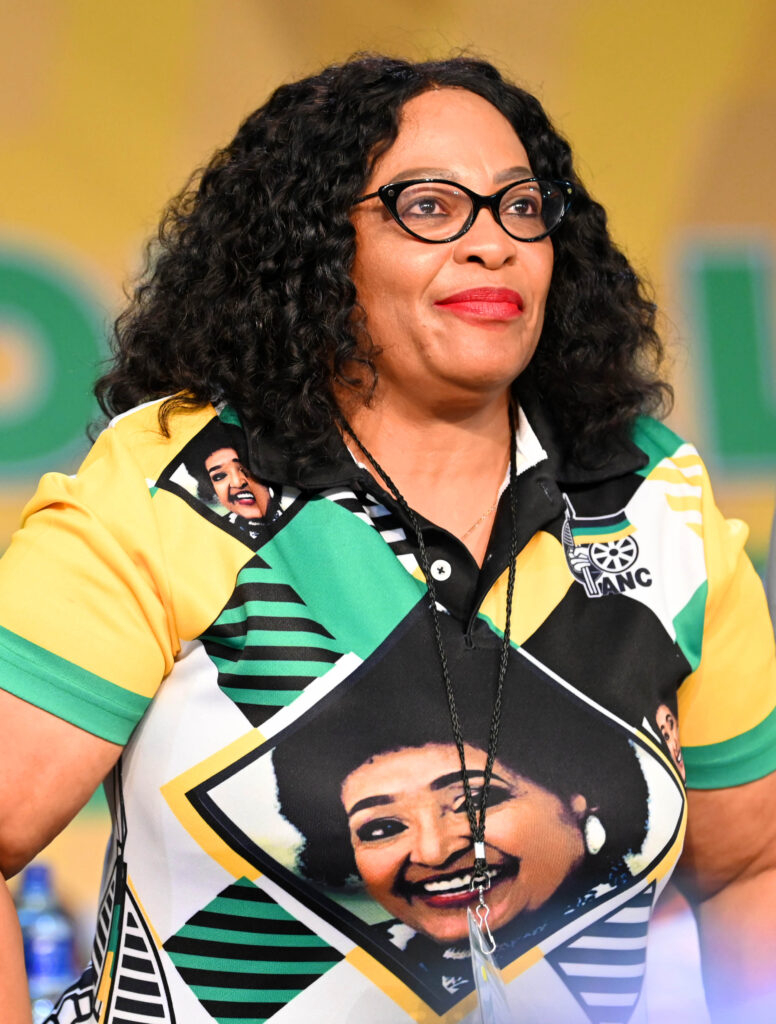
In a close race, Nomvula Mokonyane was elected first deputy secretary-general of the ANC, pipping Tina Joemat-Peterson with 2,195 votes versus the latter’s 2,145.
In her new position, Mokonyane is expected to work with the Office of Secretary-General and turn it into a well-oiled machine along with Mbalula and the newly elected second deputy secretary-general, Maropene Ramokgopa.
A long-time ally of former president Jacob Zuma, Mokonyane was cited in the State Capture report for receiving lavish gifts from the Bosasa special projects team. Mokonyane served as Gauteng Premier between 2009 and 2014.
She also served as Gauteng Human Settlement MEC.
Mokonyane was ANC head of campaigns before she was elected to her current position.
MAROPENE RAMOKGOPA: Second deputy Secretary-General
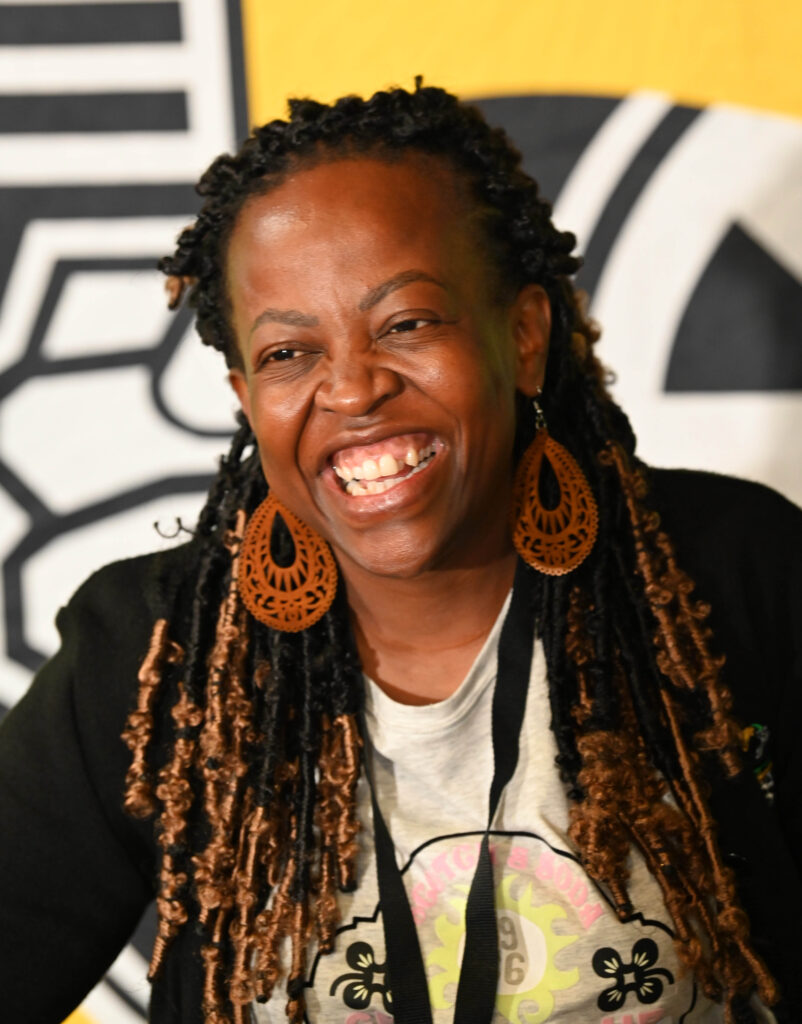
The position of second deputy secretary-general went to Maropene Ramokgopa with 2,373 votes. The only challenger, Ronalda Nolumango, got 1,948 votes.
Ramokgopa, who is ANC Women’s League national coordinator, serves as the Special Adviser to President Cyril Ramaphosa on international relations.
Her election is part of efforts to bring in women and the youth into senior leadership positions of the governing party and government. Ramokgopa also served as the national executive committee member of the ANC Youth League.
GWEDE MANTASHE: National Chairperson
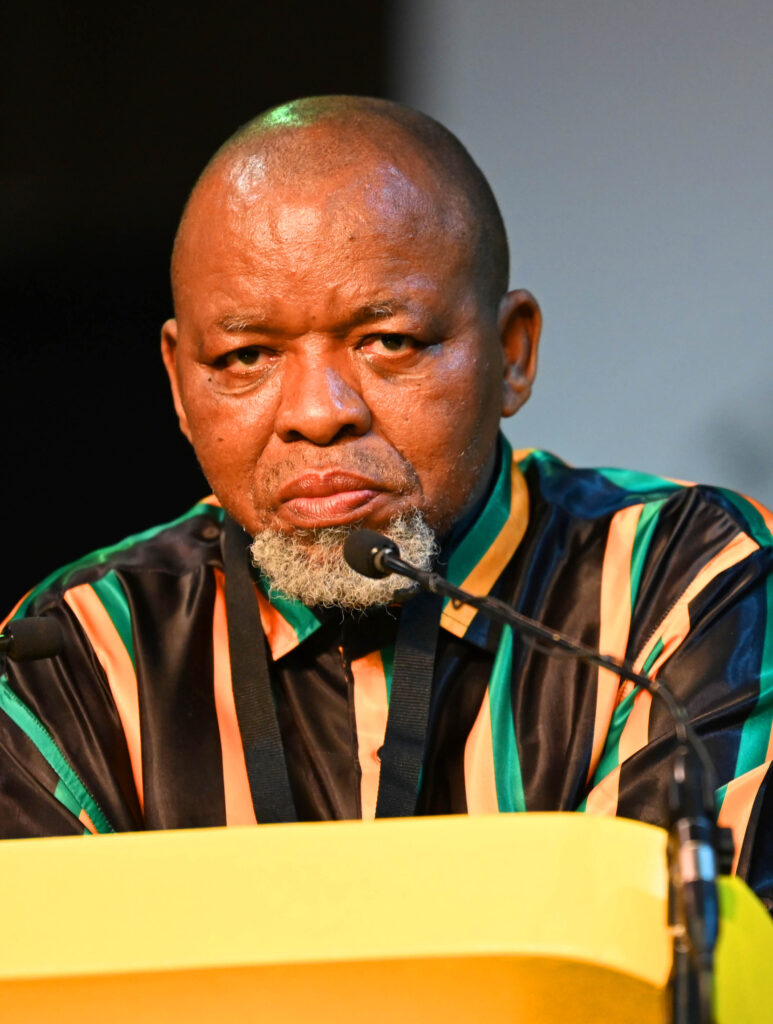
The race for the ANC’s national chairperson was extremely close.
Gwede Mantashe secured 2,062 votes, followed closely by Stanley Mathabatha with 2,018 votes.
Supporters of former Health Minister Dr Zweli Mkhize heckled him at the elective conference, saying he should not form part of the new ANC top seven.
Mantashe, 67, has been virulently criticised for defending Ramaphosa despite the president facing serious allegations of money laundering emanating from hiding foreign currency in a sofa at his game farm.
He has also been criticised for failing to deal with the country’s energy crisis. His hostile stance on renewable energy has angered many within the business sector.
Many stakeholders and political parties, including the Democratic Alliance (DA) and the Economic Freedom Fighters (EFF), say Mantashe is useless and should be fired because of Eskom’s electricity crisis
Mantashe, a former General Secretary of the National Union of Mineworkers (NUM), vigorously campaigned for Ramaphosa’s second term bid ahead of the 55th national conference in Nasrec.
GWEN RAMOKGOPA: Treasurer-General
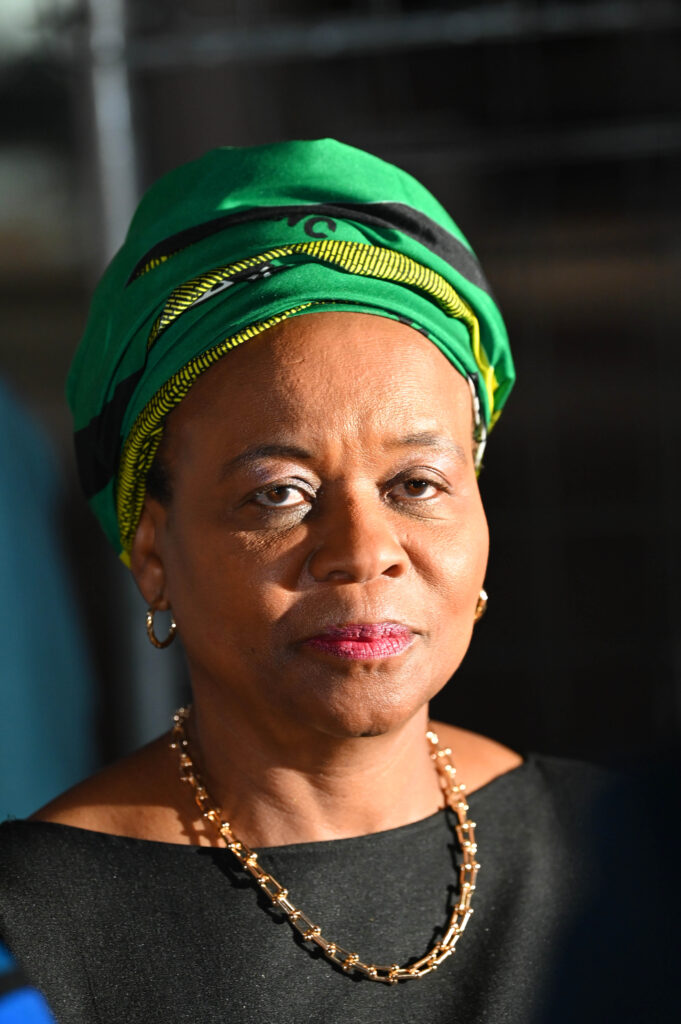
Gwen Ramapkgopa, a close ally of Ramaphosa, was elected to the Treasurer-General position with the most votes, 1,809, with current ANC spokesperson Pule Mabe coming in second with 1,622 votes.
She is the first woman to be elected to the position of ANC Treasurer-General in the entire history of the party.
Before her election on Monday, Ramokgopa served on the ANC’s National Working Committee (NWC).
Earlier this year, Ramaphosa wanted her to act as Secretary-General following the suspension of Ace Magashule but the move was shot down.
As the new Treasurer-General, Ramokgopa faces a daunting task ahead – the party’s finances are in total disarray and staff went for months without receiving salaries.
The party’s headquarters, Luthuli House, has also been unable to implement certain organisational programmes due to lack of money. What made matters worse for the ANC was the passing of the political party funding act, which calls for parties to disclose all donations above R100 000.
Ramokgopa is also the former executive mayor of City of Tshwane and once served as the Gauteng MEC for health.
Ramokgopa, born in Atteridgeville, Pretoria, is the former chancellor of Tshwane University of Technology. She is the aunt of Kgosientsho Ramokgopa- the former Tshwane executive mayor and current head of Investment and Infrastructure in the office of the president.
INSIDE POLITICS

